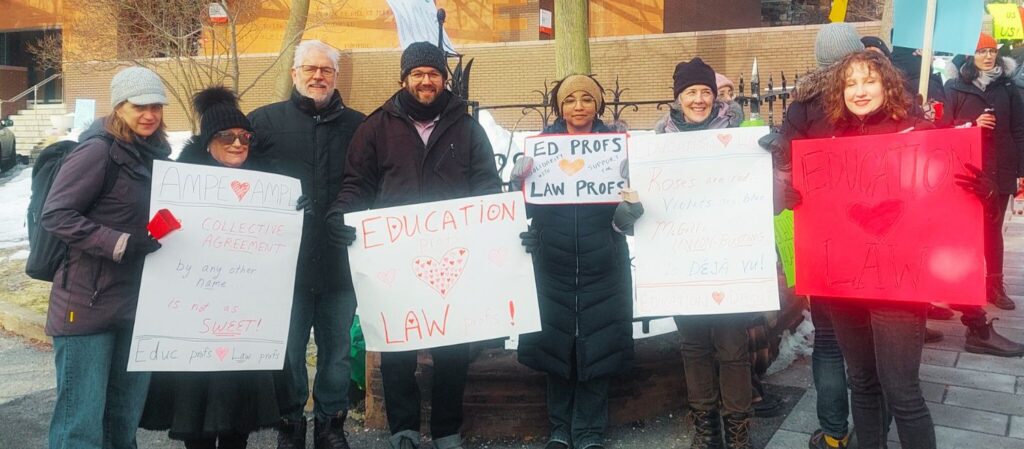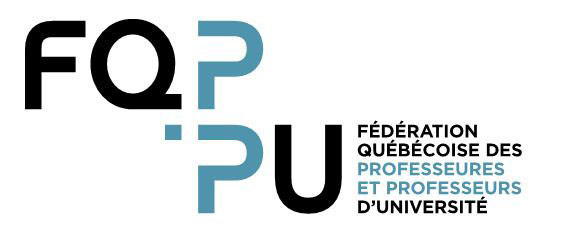Photo : Abby Zhu / The Tribune
The recent union victories at McGill University mark a transformative moment for an institution that has lacked faculty unions since its founding in 1821.
Following the certification of the Association of McGill Professors of Law (AMPL), two more unions received certification: the Association of McGill Professors of the Faculty of Arts (AMPFA) and the Association of McGill Professors of Education (AMPE). Furthermore, the Association of McGill Academic Staff of the School of Continuing Studies (AMASCS) has filed a petition for certification.
These new organizations advocating for faculty rights did not have an easy journey. These certifications and future ones represent the hard-won results of a determined struggle—primarily led by law professors—against an administration that employed various tactics to undermine this unprecedented collective mobilization. What lessons can we draw from this movement for the future of academic unionization?
Table of contents
Lesson 1: Solidarity and Mobilization Triumph Over Obstacles
From the start, McGill’s administration stood out for its aggressive opposition to faculty unionization. Despite its legal obligation to negotiate in good faith, the university management employed tactics that caused significant delays in the negotiation process.
Even with the appointment of a government conciliator, McGill representatives consistently refused to meet regularly with the negotiating committee, arrived unprepared at meetings, and engaged in stalling tactics.
In numerous instances, the administration insisted that the collective agreement refer to university policies, effectively reserving the right to change faculty working conditions unilaterally. This action undermined the principle of collective bargaining.
Moreover, the administration challenged the right of the Faculty of Law’s professors to unionize in court despite the Tribunal administratif du travail having already recognized this right.
These aggressive opposition tactics only strengthened the professors’ resolve. Rather than deterring faculty efforts, such actions validated and intensified their collective fight for recognition.
We’ve witnessed an administration willing to compromise professors’ fundamental right to collective bargaining. Yet, despite these obstacles, we can proudly declare that solidarity and perseverance have triumphed.

Lesson 2: Academic Unionization as a Shield Against Managerial Overreach
McGill University’s anti-union stance sparked a strong response from its faculty, uniting professors across Quebec and Canada. As they fought for their right to collective bargaining, McGill’s professors received steadfast support from the Fédération québécoise des professeures et professeurs d’université (FQPPU) and the Canadian Association of University Teachers (CAUT).
At a crucial moment, the presidents of unions affiliated with the FQPPU co-signed a letter emphasizing the importance of unions as vital allies in preserving universities’ fundamental mission. This letter brought attention to an often-overlooked reality: the most serious crises occur not when multiple stakeholders have a voice but when unchecked power causes institutions to stray from their public mission, prioritizing private interests instead.
In the increasing trend toward private-sector-inspired management models in higher education, unions provide essential protection against policies that undermine working conditions and academic excellence.
Unionization does not threaten universities. On the contrary, it represents a necessary response to management practices that harm the university community and, by extension, the quality of teaching and research.

📬 Read More: The letter denouncing McGill’s anti-union strategies, co-signed by presidents of FQPPU-affiliated unions.

Lesson 3: Professors Will Not Back Down
McGill University operated without faculty unions for nearly two centuries, gaining a reputation for poor labour relations.
The administration’s disregard for professors’ rights to collective bargaining sharply contrasts with the collegiality principle that defines Quebec universities. Collegiality is more than just a term in annual reports; it should appear in the daily governance of academic institutions.
McGill’s professors understand this well. Their ongoing struggle sends a clear message: after two centuries of absence, their unions are here to stay. AMPL, AMPFA, AMPE, and AMASCS represent the faculty’s unwavering determination to speak up and defend their fundamental rights.
To current and future unions: rest assured, you can count on the support of the FQPPU at every step of your collective mobilization.
A Historic Momentum for the Future
These victories mark not an end but a beginning—a breath of fresh air for McGill University’s future. They provide valuable lessons for all academic unions.
Are you an FQPPU member seeking assistance or advice? Are you a professor navigating the certification process? Visit our Member Services section and reach out to us for support.
Stay up to date
Subscribe to the Federation newsletter.


